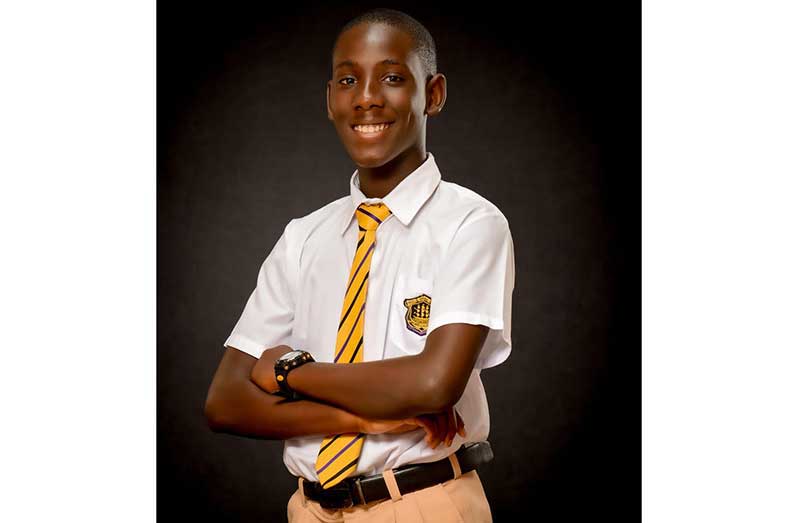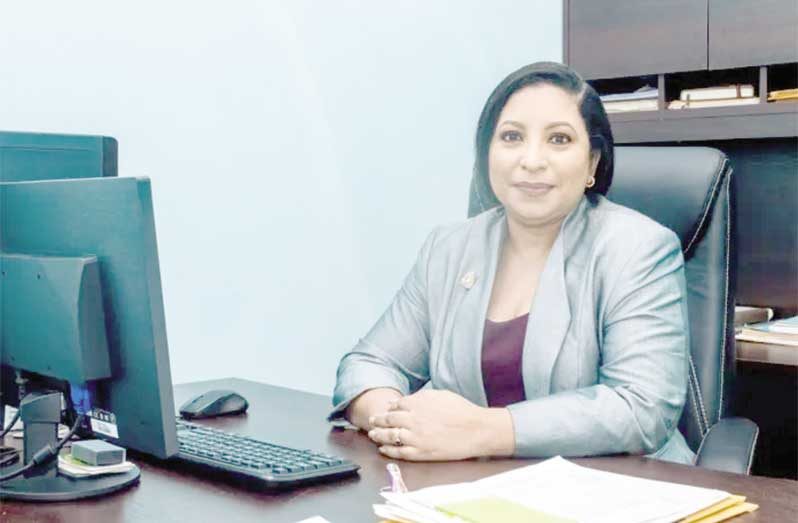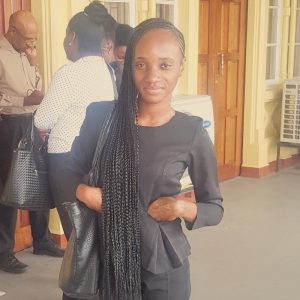VICE-CHANCELLOR of the University of Guyana (UG), Dr. Paloma Mohamed-Martin, has issued a strong call to action, highlighting the urgent need for more Guyanese to seek professions in the STEM (science, technology, engineering, and mathematics) disciplines.
She brought attention to the growing discrepancy between the availability of skilled individuals in critical scientific subjects and national expectations during her interview on this week’s episode of the Energy Perspectives Podcast.
The Vice-Chancellor, who is well-known for her support of research and education, emphasised that Guyana’s rapidly expanding energy industry, along with developments in technology and the natural sciences, has produced previously unheard-of opportunities in the STEM fields. She did, however, emphasise that the nation’s capacity to fully capitalise on these prospects may be hampered by a lack of expertise in the STEM sectors.

As such, the university has teamed up with the Greater Guyana Initiative (GGI) to present the pioneering Annual Regional Accelerator for STEM Students Readiness (RASSR) Camp in response to this circumstance. Mohamed-Martin explained that the goal of the camp is to find, train, and support young people from all 10 of Guyana’s administrative regions who have a strong desire to advance the country’s future development. Nearly 100 children who excelled at National Grade Six Examinations (NGSA) have benefitted from the programme thus far. They have aced important subjects like mathematics, integrated science, chemistry, physics, biology, technology, and engineering.
“We have taken 10 students who have done well at [NGSA]. They must have had a good score in math and sciences. We took 10 children from each region and we brought them onto our campus for the last three years…the same students. We created a curriculum based on the CXC [Caribbean Examinations Council] college entrance examinations for the Caribbean. We took the hardest questions… the questions and the problem students fail in those exams.”
The Vice-Chancellor explained that UG lecturers designed the curriculum, with summer teaching aimed at accelerating students’ entry into college, a year earlier than their peers did.
“After three years, next year is the last year, we’ve lost only one student. So, we have ninety something students still with us. We were catering for a 50 per cent attrition but everybody is holding on to the programme. Most importantly, the first 14-year-old came into UG this year from the programme.” That child’s name is Yeshua Hutson, a former Queen’s College student.
After securing Grade One and Grade Two passes at the Caribbean Secondary Education Certificate (CSEC) examinations, Hutson is now pursuing a Bachelor of Science in Computer Science at UG.
Mohamed-Martin shared that she is awaiting the results of children who attended this year’s summer camp. Depending on their performance, the university plans to fast-track these students, allowing them to take their CSEC exams by next January or May, with the goal of helping them matriculate into the university sooner. According to her, RASSR helps children who exhibit a “genius spark” in order to keep them interested in and participating in STEM. She explained that around 20 per cent of jobs in the oil and gas industry, particularly those at higher levels, require a strong foundation in science. Additionally, beyond the oil and gas sector, she noted that the manufacturing industry also heavily depends on science-based skills for many roles.
The Vice-Chancellor emphasised that Guyana is now poised to undertake transformative work, both regionally and internationally, which makes it essential to have more people in the sciences. She stressed the importance of fostering interest in science from an early age, beginning in nursery school, rather
than waiting until students reach Grade Nine to introduce them to these fields. She also called for the development of a technology-focused educational track alongside the traditional science stream. Additionally, she expressed enthusiasm about the innovative St. George’s School of Sciences, noting that it is a novel initiative in the Caribbean. Mohamed-Martin pointed out that the university is not producing enough engineers to meet the growing demand. She said companies are hiring entire graduating classes of engineers, as the university is not only supplying the oil and gas industry but also the gold mining and booming construction sectors.



.jpg)








